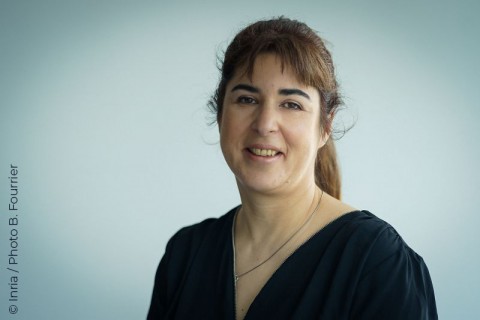
In your view, what does scientific mediation represent and what are its challenges, in particular with regard to the Science & You event?
In my view, scientific mediation is first and foremost a meeting between scientists and members of the public, be they schoolchildren, students, geeks, scientists from other disciplines or the simply curious. Above all it consists in demystifying sometimes complex notions and opening an unbiased dialogue on the digital world of the future that we are contemplating. The Science & You event is a unique opportunity to meet colleagues from other institutions and even other scientific fields, and to share our respective “success stories”. This year, Artificial Intelligence’s special role in the symposium – a subject of interest central to the digital sciences but also the source of a number of society’s fantasies, fears and dreams – is of particular interest to us.
Our era is experiencing a certain degree of distrust amongst the population as regards science. How is this trend affecting the digital sciences? Do you think that the French people’s confidence in digital technology needs strengthening?
Concerning digital technology, I believe that there are two types of distrust. The first of these relates to confidence in the technology itself, in particular when it replaces human activities in critical fields. I am thinking in particular of robot surgeons and autonomous vehicules. In these fields, a better understanding of science may lead to a better understanding of the risks involved, particularly when compared to human error and reaction times. The second of these relates to the use of digital technology by malicious individuals, whether this concerns computer viruses, shared personal data, etc. Within this context, an understanding of digital technology may, on the contrary, make it possible to better guard against such attacks and be vigilant rather than distrustful when faced with potential threats.
Do you think that technological advances – in particular a greater degree of technology within the home and greater computer literacy – are prompting a rethinking of scientific mediation, in both form and substance?
While it is true that homes today are highly equipped in terms of digital technology and that many of our fellow citizens, especially the younger members of society, are very comfortable using digital tools, fundamental aspects of digital technology are nevertheless often obscure (science and technology are often confused), and their social impacts are still based on fantasy (and here we’re talking about mistaking science-fiction for science). Reboots of old science‑fiction films show us that the issues raised are intrinsically the same as those raised 20 years ago. Today, therefore, scientific mediation needs to continue in its primary mission whilst at the same time adapting to changes in the practices of the general population .
